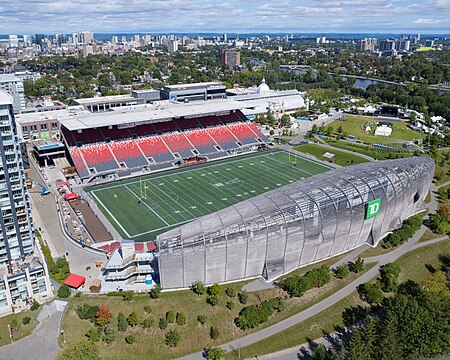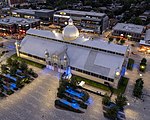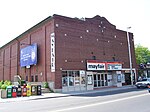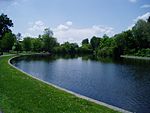TD Place Stadium

TD Place Stadium (originally Lansdowne Park and formerly Frank Clair Stadium) is an outdoor stadium in Ottawa, Ontario, Canada. It is located at Lansdowne Park, on the southern edge of The Glebe neighbourhood, where Bank Street crosses the Rideau Canal. It is the home of the Ottawa Redblacks of the Canadian Football League (CFL), Atlético Ottawa of the Canadian Premier League (CPL) and the Ottawa Gee-Gees football team of Ontario University Athletics (OUA), which represent the University of Ottawa. The playing field has existed since the 1870s, and the complete stadium since 1908. The stadium has been host to FIFA tournaments, Summer Olympic Games, and seven Grey Cups.
Excerpt from the Wikipedia article TD Place Stadium (License: CC BY-SA 3.0, Authors, Images).TD Place Stadium
Bank Street, (Old) Ottawa Capital
Geographical coordinates (GPS) Address Website External links Nearby Places Show on map
Geographical coordinates (GPS)
| Latitude | Longitude |
|---|---|
| N 45.398177777778 ° | E -75.68365 ° |
Address
TD Place Stadium (Lansdowne Park)
Bank Street 1015
K1S 3W7 (Old) Ottawa, Capital
Ontario, Canada
Open on Google Maps









